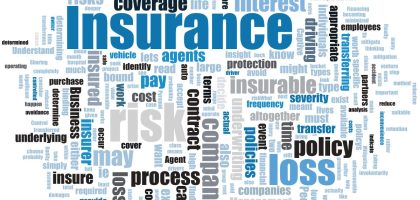Introduction A lot of people treat insurance as a last-minute purchase and buy it only because it feels necessary...
Introduction Having a small business in India starts with immense opportunities but also with a wide range of challenges. Moreover...
Introduction A solid risk management plan has to have both business interruption and loss of income insurance which gives a...
Introduction In today’s digital age, e-commerce has become a support system for market growth in India but the opportunity comes...
Introduction Mergers & Acquisitions Insurance in India also known as transactional risk insurance has evolved as an important tool for...
Introduction Underinsurance in businesses is one of the most common yet overlooked financial risks faced by companies in India. If...
Introduction To find weaknesses and opportunities strengthen your defences and guarantee adherence to legal requirements begin your risk assessment checklist...
Introduction Business Owners Policy India and BOP insurance provide a streamlined, cost effective safety net for small and medium enterprises....
Introduction Underinsurance in businesses is one of the most common yet overlooked financial risks faced by companies in India. If...
Introduction Annual insurance checklist is not just a year end formality, it is the most important step in regulating an...
Latest Blogs
Introduction At the time of renewing or buying car insurance, people generally have two main options in front of...
Introduction A lot of people treat insurance as a last-minute purchase and buy it only because it feels necessary in...
Whether it’s a little scratch or a big accident, a car insurance claim can save time, money and a...
Before buying term insurance, most people ask how much cover do they really need. You can’t buy a plan...
Introduction Insurance planning is not a challenge but can surely feel confusing with so many options, terms and mixed...
Insurance is a financial protection that secures your family, health and assets against unexpected events. The market today is...
With every year, healthcare is becoming more expensive. Whether it’s a routine check-up or a surgery, medical bills are...
Introduction Do you think car insurance renewal is just another formality that you should follow every year? Actually, it’s...


















